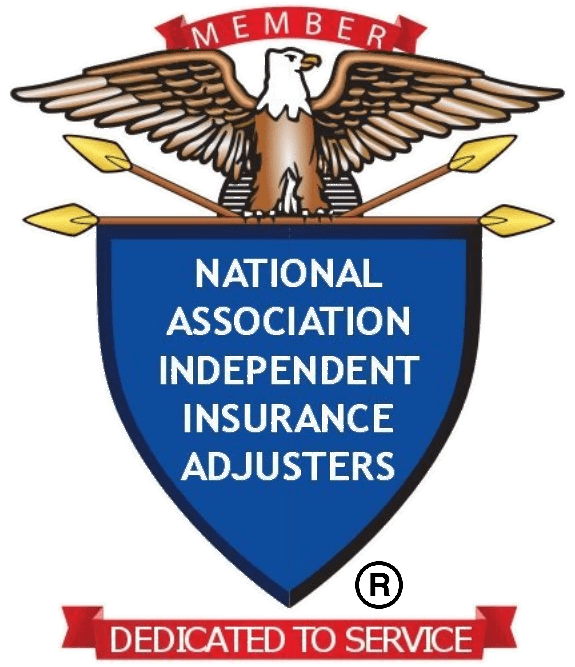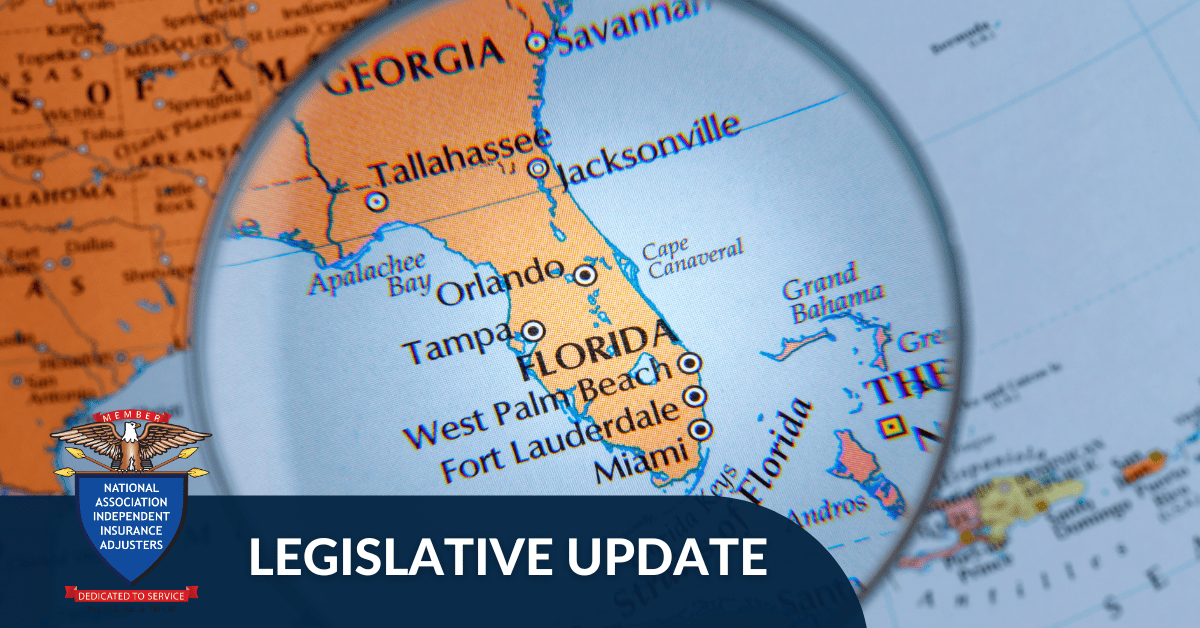For more information about the NAIIA legislative committee and upcoming events, contact National Legislative Chair Barry Hausch of Hausch & Company at barry@hauschco.com or visit us at www.NAIIA.com.
From the desk of Southeast Region Legislative Chair Edward R. Crittenden, FIFAA President of Crittenden Adjustment Company.
The following will serve as an update on recent Legislative changes in Florida. The information provided is in relation to the NAIIA Legislative Committee. The information contained in this article are summaries only of some details that I have been able to develop. It is strongly recommended that your own individual research be conducted when involved in the handling of Property and/or Tort related matters in the State of Florida in order that you are familiar with the changes that have recently been enacted.
On December 16, 2022, Florida Governor Ron DeSantis enacted Senate Bill 2-A which, according to Governor DeSantis, is aimed at stabilizing Florida’s Property insurance market and in turn increasing competition and strengthening consumer protections. These changes go into effect January 1, 2023 and are not retroactive. The most significant aspect of this new Legislation was the elimination of Assignment of Benefits (AOB) contracts under a property insurance policy. Any Assignment of Benefits document executed January 1, 2023 or after is considered void, invalid and unenforceable. The Bill also reduced the amount of time an insurer has to evaluate claims with the ultimate goal of providing a timely claim determination to an insured. Insurers will need to determine what, if any, additional information is necessary for its investigation of the claim quickly. A request for information must be sent to the insured at least 15 days before the deadline to pay or deny the claim which is now reduced to 60 days.
The amount of time an insured has to file a claim or re-open a claim is reduced from 2 years to 1 year. Additionally, an insured now only has 18 months to file a Supplemental Claim reduced from the prior allowance of 3 years. Insurers after January 1, 2023 may now include mandatory binding arbitration provisions within their policies by separate Endorsement understanding that mediation must take place prior to the initiation of arbitration. The new law is aimed at eliminating Florida’s one way attorney fees for property insurance claims which is intended to discourage frivolous lawsuits, while also promoting more competition in the private insurance industry.
In addition to the above, there are reforms within Senate Bill 2, which revise Florida’s Bad Faith Statute eliminating an insured’s right to file a Bad Faith Action based solely on the payment of an appraisal award or the acceptance of a proposal for settlement/offer of judgement. There are multiple changes in deadlines with regard to claim handling procedures under Florida Statute 627.70131 which should be reviewed.
Governor Ron DeSantis has also signed into law rather significant changes in Tort reform and Bad Faith Insurance Claim Legislation. Sweeping changes of Negligent Liability have been made, replacing the prior Pure Comparative Negligence system with one, now identified as Modified Comparative Negligence, and shortening the Statute of Limitations in General Negligence Actions from 4 years to 2 years. The State has also amended the standard for Bad Faith Insurance Claims in new Legislation signed into law March 24, 2023.
As we are all aware, States across the country use 1 of 3 Negligence Liability systems: 1) Contributory Negligence, 2) Pure Comparative Negligence, or 3) Modified Comparative Negligence. Until the execution of this most recent reform, Florida has been primarily a Pure Comparative Negligence Liability system which allows plaintiffs to recover in proportion to the defendants percentage of responsibility for the plaintiffs injuries regarding of plaintiffs liability. Under the old system in Florida (Pure Comparative Negligence) if a defendant if 40% responsible for the plaintiff’s injuries, the plaintiff could recover 40% of the damages associated with the injury against the defendant event if the plaintiff was 60% liable. The plaintiff had 4 years under the old Rule to file a Negligence Law Suit. All of these negligent factors obviously would rely upon the No-Fault Rule in the State of Florida eliminating any Tort Action absent meeting the obligation of the thresholds that exist under the No-Fault Rule.
The new Rules replaces Pure Comparative Negligence with Modified Comparative Negligence. Under the new system, a plaintiff can recover in proportion to the defendants percentage of responsibility only if the plaintiffs own share of responsibility is 50% or less. If a plaintiff bears more than 50% liability, the plaintiff cannot recover from the defendant for any Negligent Action; more over, the plaintiff must file a Negligence Action within 2 years instead of the previously allowed 4. It is to be noted, however, that Personal Injury and Wrongful Death Claims arising out of Medical Negligence are still subject to the Pure Comparative Negligence standard with no change in the Statute of Limitations for that level of claim, which was previously 2 years and remains unchanged.
The new law also involved Bad Faith Insurance Claims and Fee Awards Modification. The law clarifies that negligence alone is insufficient to constitute insurance Bad Faith. It imposes on insureds and those representing them a duty to act in good faith when furnishing information regarding the claim, making demands of an insurer, setting deadlines and attempting to settle a claim. Under the new law the fact finder is able to consider any Bad Faith conduct of the insured in assessing damages.
The new Bill creates a safe harbor from Bad Faith Liability if a liability insurer tenders the lesser of the policy limits or the amount demanded by the claimant within 90 days after receiving actual notice of claim accompanied by sufficient evidence to support its amount. The existence of this safe harbor and refusal of an insurer to come within its reach is not admissible to support an allegation of an insurers Bad Faith. The Bill tolls the Statute of Limitations to allow a plaintiff to bring a claim if payment is still refused after 90 days. The enactment of the law, although considered effective at the present date, largely applies to the Causes of Action filed after the effective date of the Rule. The changes in the Statute of Limitations for negligent actions applies to causes of action occurring after the effective date of the law. The law cannot be interpreted to impair rights under an insurance contract arising before the effective date of the law. The Legislative changes referenced will apply to insurance contracts issued or renewed after the effective date of. theact.
Again, it is recommended that anyone handling the claims within the Florida Jurisdiction review this new Tort reform enacted by Governor Ron DeSantis March 24, 2023 in order that all are familiar with the changes and the adjustments that are made in the Comparative Negligence commentary as well as the change in Statute of Limitations and time frames permitted.





